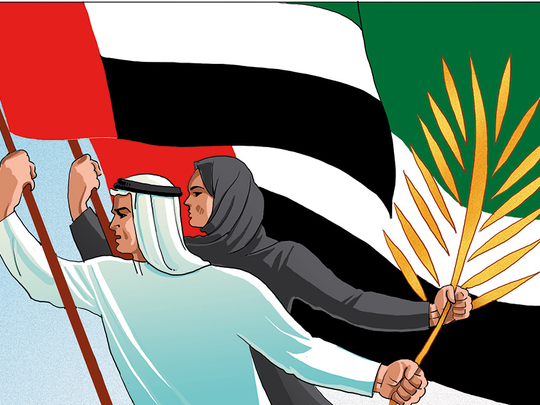
The UAE has a way of articulating its soft-power concepts in practical ways so that the country’s social development continues to deepen, and its people can find new ways in which to commit their time, skills and money to improve their society.
The leadership is good at spelling out its expectations of how people can be actively involved in building society and this has helped create a society that is at ease with itself and in which the people are committed to their society and nation. This marks the UAE out from other more dysfunctional states in the region, and gives the UAE an internal stability that allows the government to take a lead in helping rebuild the region as it stands up for the rule of law and the nation state.
This week’s announcement of the details of the strategy for the Year of Giving has converted what sounded like a simple slogan into a useful series of moves that will expand and deepen the all-important concept of the UAE’s active citizenship, which has been a hallmark policy throughout President His Highness Shaikh Khalifa Bin Zayed Al Nahyan’s presidency and has been a consistent part of the government’s philosophy.
In 2005, Shaikh Khalifa summarised his concept of an active citizen when he said “it is high time to make the people of the UAE understand the true meaning of work — that it means responsibility and reflects human, civil and religious values. Our institutions need to work hard to diversify the skills of the national human resources, to raise productivity, encourage investment in human resource development, improve voluntary work and create awareness of its noble work and its significance to individuals and society in general.”
Since then, there have been successive announcements of how the government has encouraged UAE citizens to take an ever more active role in building society. More recently, the main focus of the UAE’s inaugural Government Summit in 2015 was a strongly positive message of how to energise the Emirati population and foster social inclusion.
His Highness Shaikh Mohammad Bin Zayed Al Nahyan, Crown Prince of Abu Dhabi and Deputy Supreme Commander of the UAE Armed Forces, led the way with his overview of a 50-year vision of how the government should promote and support the “people of the UAE who make us proud and are the real wealth of our country”.
‘Willingness to make sacrifices’
Backing up this call at the 2015 Government Summit, the social power of an attitude of positive patriotism was the core of the address by Lieutenant-General Shaikh Saif Bin Zayed Al Nahyan, Deputy Prime Minister and Minister of Interior.
He spoke of the importance to the UAE of an engaged citizenry who are committed to their country and society, and were fully engaged in understanding of the UAE’s aims, which can resist any ideologies of devastation and destruction. This touched on the secondary aim of this policy, which is to be aware that the primary aim of improving the state of society has a great benefit in creating a climate in people’s thinking that resists any attraction to extremism or radicalism.
An ultimate act of giving is to risk and lose one’s life, which is why this week’s cabinet meeting was held at the Wahat Al Karama memorial to those who have given their lives for the country.
During the meeting His Highness Shaikh Mohammad Bin Rashid Al Maktoum, Vice-President and Prime Minister of the UAE and Ruler of Dubai, paid tribute to the martyrs saying “the people of the UAE have proven their willingness to make sacrifices for the sake of giving. They deserve our utmost admiration.”
The cabinet meeting then reviewed the national strategy for the Year of Giving and listed corporate social responsibility, voluntary work, humanitarian and charitable activity, and serving the nation as areas that citizens and residents can get involved in, while also listing the role of the media and a review of the legislative framework as important parts of the strategy.
As well as encouraging this kind of social involvement, the various government initiatives hope to coordinate the different activities so that they can complement each other rather than duplicate or compete. For example the Ministry of Community Development will both outline a strategy to consolidate voluntary work, while also setting up a national centre to coordinate efforts across the country. Similar focusing and coordinating in corporate social responsibility work and humanitarian and charity operations will allow the effect of this giving to be multiplied rather than dissipated.
The sixth element of the strategy for the Year of Giving was serving the nation. Clearly working for the government, and serving in any or the armed forces or public services is an important part of public service, which also includes the new programme of national service, in which all Emiratis have to spend a year in the armed forces. But as Shaikh Saif said at this year’s World Government Summit, even those not wearing a uniform can serve the nation and the Ministry of Youth is tasked to outline ways in which people can join in.
The key part of the Year of Giving is that it is not a gimmick that hits the country for a year and then fades, but it is an integrated part of the overall plan to build an Emirati society which is inclusive and actively engaged.












